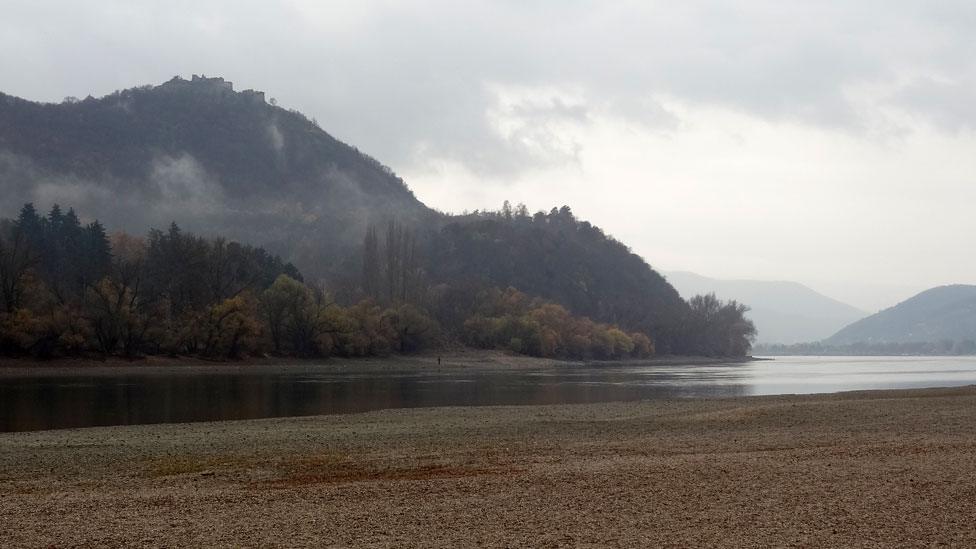Eastern leaders offer new menu at EU crisis talks
- Published
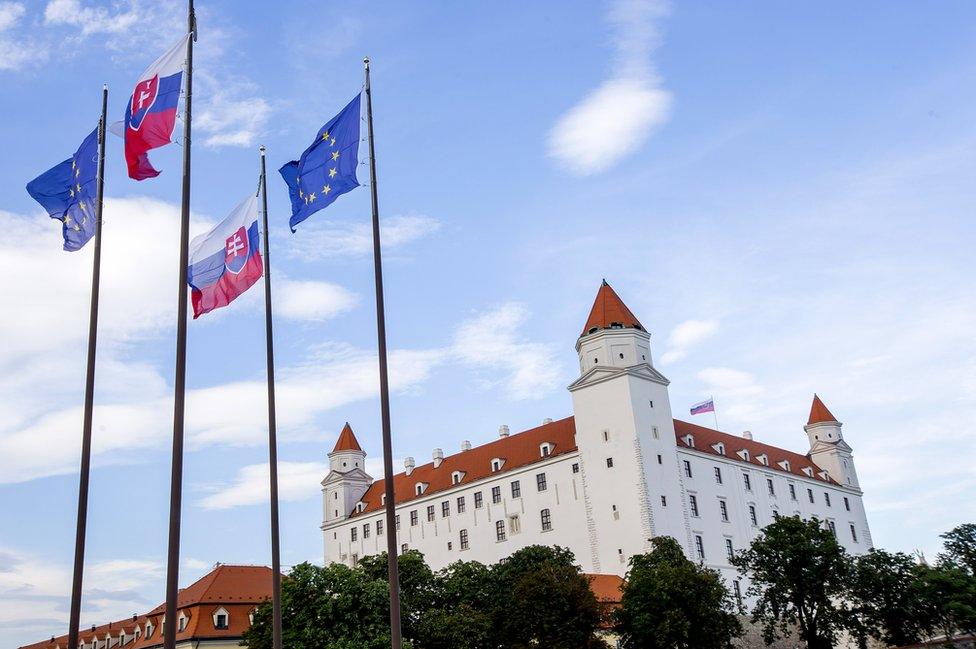
Bratislava Castle: Slovakia plays host at a momentous time in the EU's history
Leaders of 27 European Union countries meet in the Slovak capital Bratislava on Friday - without the UK - to discuss a post-Brexit EU.
Some believe the meeting could reveal an ideological split between old and new, between the established order of Europe's more federalist west and a "counter-revolution" spearheaded by conservative nationalists and populists in the east.
Divisions over the migrant crisis, observers say, could show the true depth of the schism.
Poland's Beata Szydlo has two roles. As Poland's prime minister, she represents 40 million people, many - like herself - devout Catholics.
But Poland also holds the rotating chair of the Visegrad Group, an informal alliance of four Central European countries. So in a sense she speaks for the whole region.
Visegrad, says Mrs Szydlo, has "enormous potential" and "a recipe for the EU" to bring it closer to its disenchanted citizens in the wake of Brexit. That recipe, she says, will be unveiled in Bratislava.
But what is that recipe? What binds these four countries, beyond a penchant for smoked meats and sour cream?
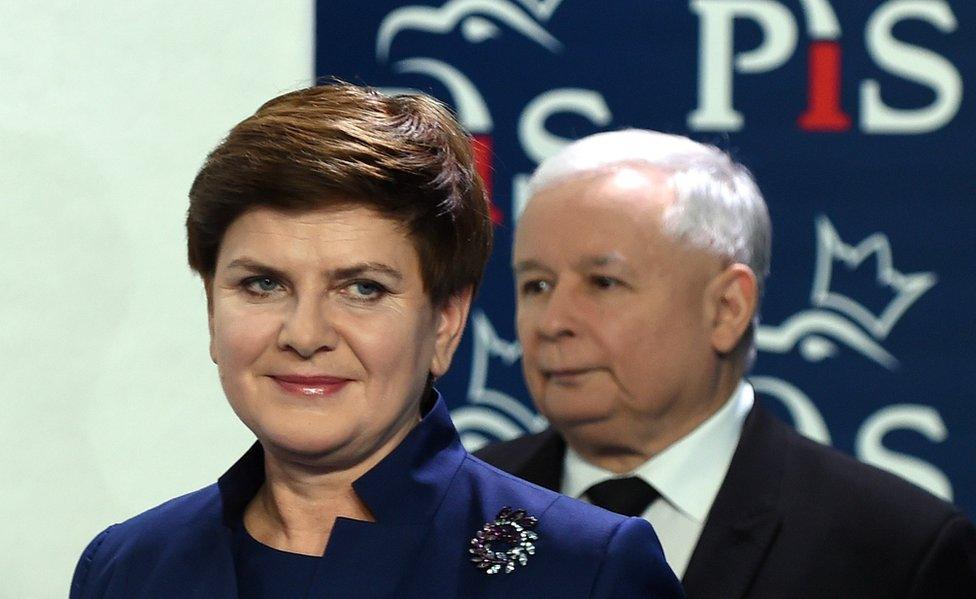
PiS leader Jaroslaw Kaczynski is the power behind Poland's Prime Minister Szydlo (foreground)
Pressure for change
In a sense Mrs Szydlo is merely the waitress. She takes her orders from the master chef toiling away in the kitchen; Jaroslaw Kaczynski, the frosty head of Poland's ultra-conservative Law and Justice Party (PiS).
He is adamant that neither Poland nor the rest of Europe should take orders from Germany, especially on the migrant crisis. Instead, he says, more power should be devolved to the EU's national parliaments.
"Should we wait for the strongest to act? But as a matter of fact there is only one such strongest," Mr Kaczynski told a recent economic forum in the Polish town of Krynica, in a veiled reference to Poland's western neighbour.
"Or should we take the initiative? I am in favour of taking the initiative.
"For this counter-revolution to be conclusive, there must be some changes in the EU itself, its structure, its decision-making process," he went on.
Many EU colleagues will bridle at that suggestion; Warsaw has received a formal warning from the European Commission over judicial reforms seen as a threat to the rule of law.
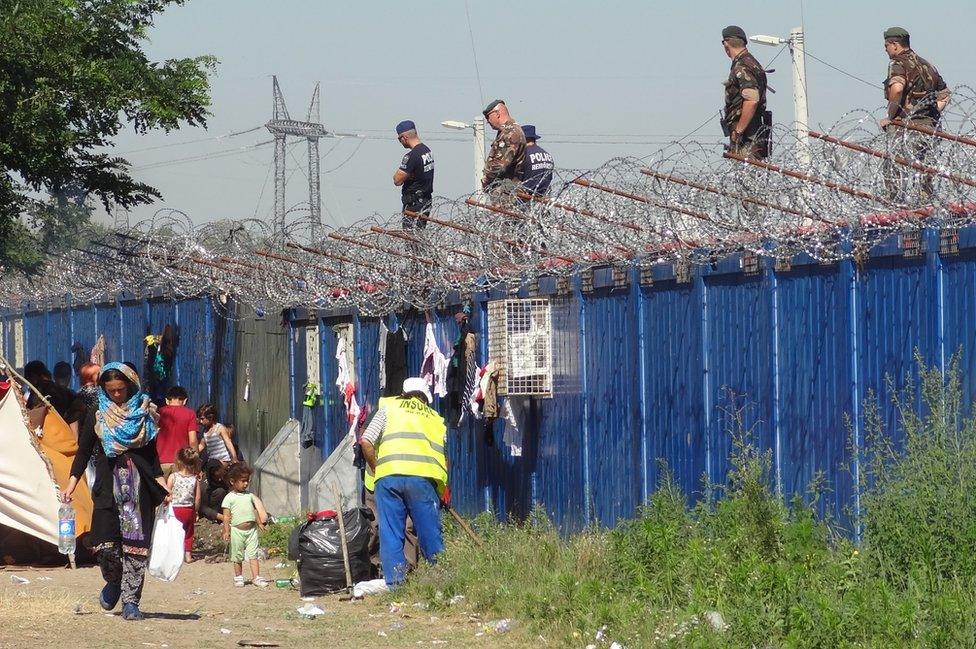
Hungarian border fence at Roszke: Muslim migrants are unwelcome
Fiery goulash
Sitting beside Mr Kaczynski was Viktor Orban, Hungary's outspoken, firebrand leader. If Mr Kaczynski is the sous chef of the "cultural counter-revolution" being cooked up in Warsaw and Budapest, Mr Orban is very much the chef de cuisine.
"Brexit is a fantastic opportunity for us," said Mr Orban, who has expressed his wish for Hungary to become an "illiberal" state and speaks openly of hordes of Muslim migrants besieging Christian Central Europe.
"We are at a historic cultural moment," said Mr Orban. "There is a possibility of a cultural counter-revolution right now." Hungary will hold a controversial referendum on 2 October, when voters will be asked whether the country should reject binding EU refugee quotas.
Pork and dumplings
In Prague, the menu is stodgy at times, but less likely to induce heartburn. The Czechs also reject EU migrant quotas, and agree with their Visegrad colleagues on the need to increase security and strengthen the EU's external borders.
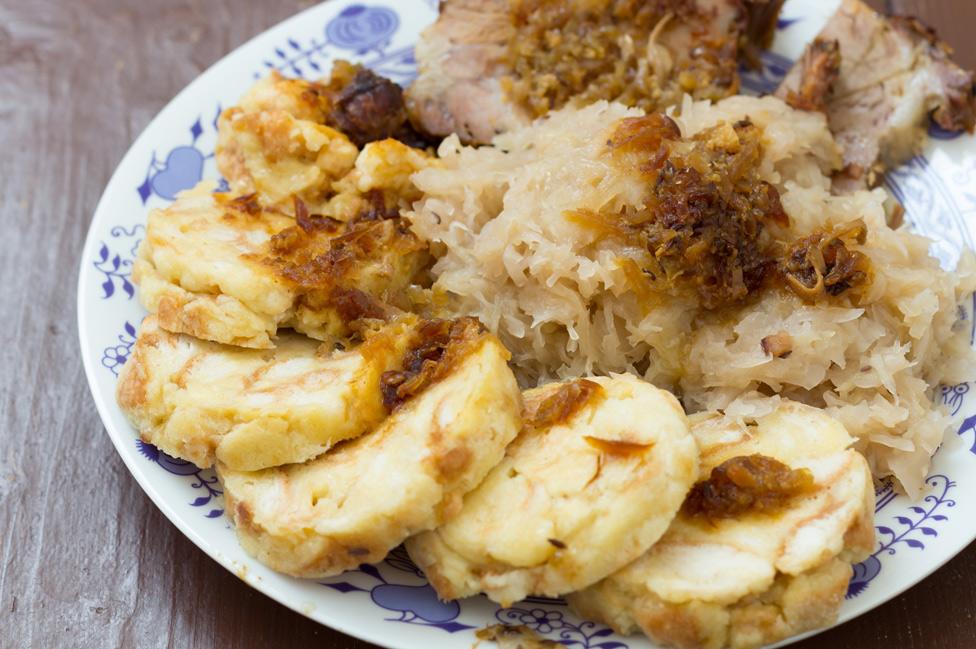
Dumplings, cabbage and pork: Not too much Hungarian paprika for Bratislava
But the Czech tone is far less confrontational (with the exception of the openly Islamophobic President Milos Zeman). There is little appetite here - at least inside the cabinet - for abandoning liberal democracy just yet.
"We know very well things we agree on - and these we defend vigorously. But from the very beginning, 26 years ago, we also agreed to disagree," the Czech State Secretary for EU Affairs, Tomas Prouza, told the BBC.
"So we never draw bad blood by trying to force any of the Visegrad Four countries to accept something they are not comfortable with. This makes us strong, because we focus on things we consider crucial for the region. And then we are free to pursue other issues separately if needed," said Mr Prouza, the prime mover behind Prime Minister Bohuslav Sobotka's EU policy.
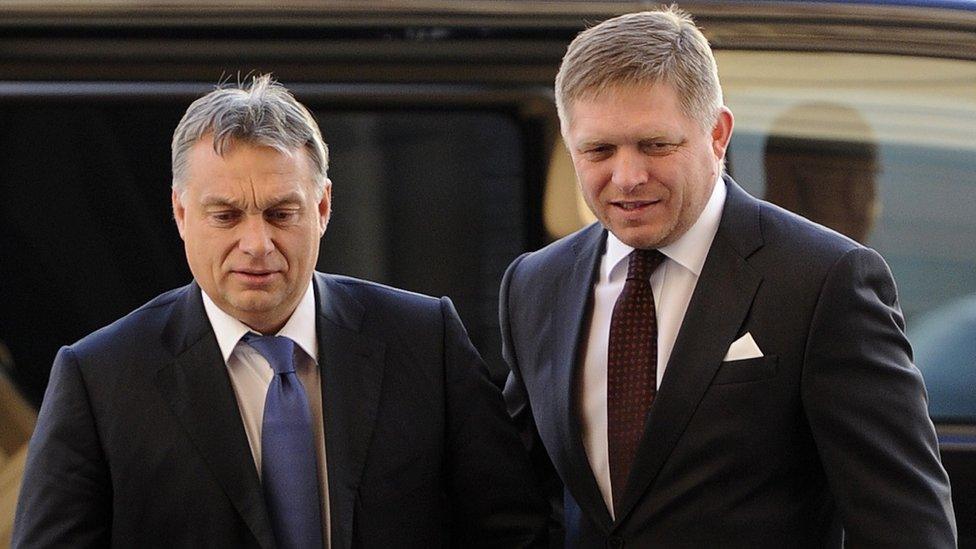
Viktor Orban (L) and Robert Fico strongly oppose the EU scheme for redistributing refugees EU-wide
Banquet host
Which brings us to Slovakia's Robert Fico. It is his restaurant - at least until Christmas, when his country relinquishes the presidency of the EU, external. He called this informal EU meeting (it is not a "summit" because not everyone has been invited), and it is the first outside Brussels in many years.
Prime Minister Fico too often reaches for the hot sauce. He thundered that Slovakia would not accept "one single Muslim migrant" and has mounted a legal challenge to the EU refugee quota scheme.
But like his Czech counterpart, Mr Fico is a pragmatist - acutely aware of the risk of angering or alienating big, powerful countries and the European Commission. Weakened by political scandal at home and a recent double heart bypass, he is keen for Friday's banquet at Bratislava Castle to be a success.
"The Slovak EU presidency will not associate itself with anything like that [the Orban-Kaczynski 'counter-revolution']", said Milan Nic, research director at Bratislava's Globsec Policy Institute.
"The Czechs are neighbours of Germany, and they're very worried by the rhetoric coming out of Budapest and Warsaw," he told the BBC.
"Also, remember, Mr Orban will be alone in Bratislava. The partner on the Polish side will be the very weak PM, Mrs Szydlo.
"Messages were passed behind closed doors at the Visegrad summit... not to disrupt Bratislava. I think it is now understood."
- Published12 September 2016
- Published9 September 2016
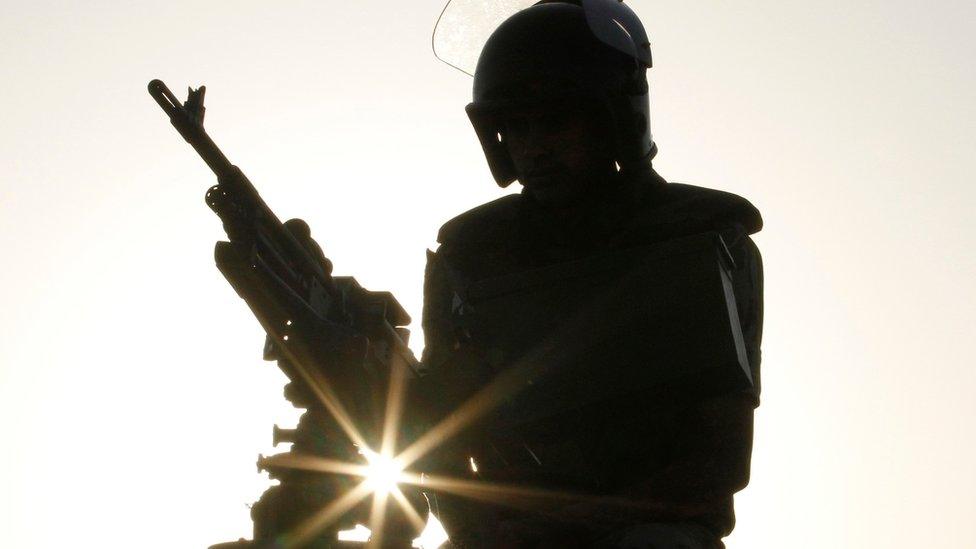
- Published10 September 2016
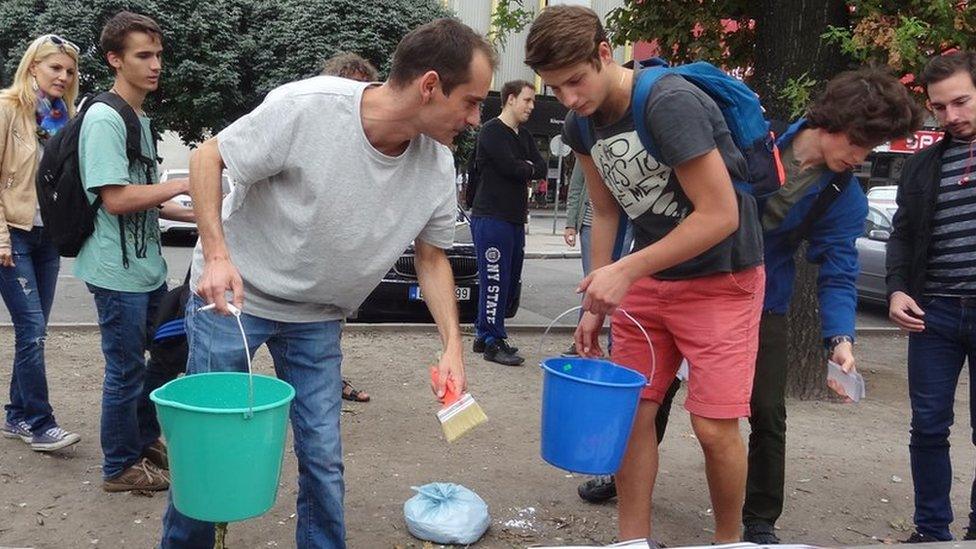
- Published2 September 2016
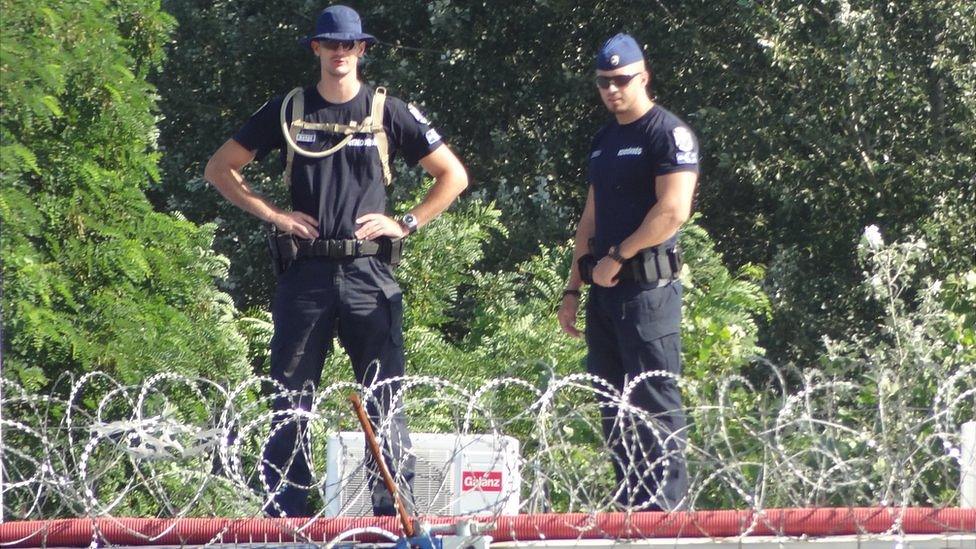
- Published26 August 2016
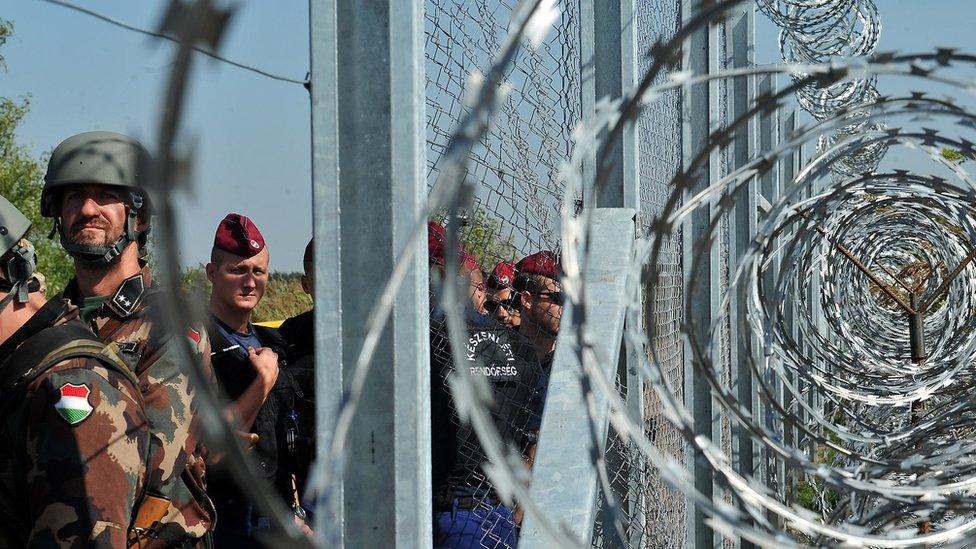
- Published21 February 2016
